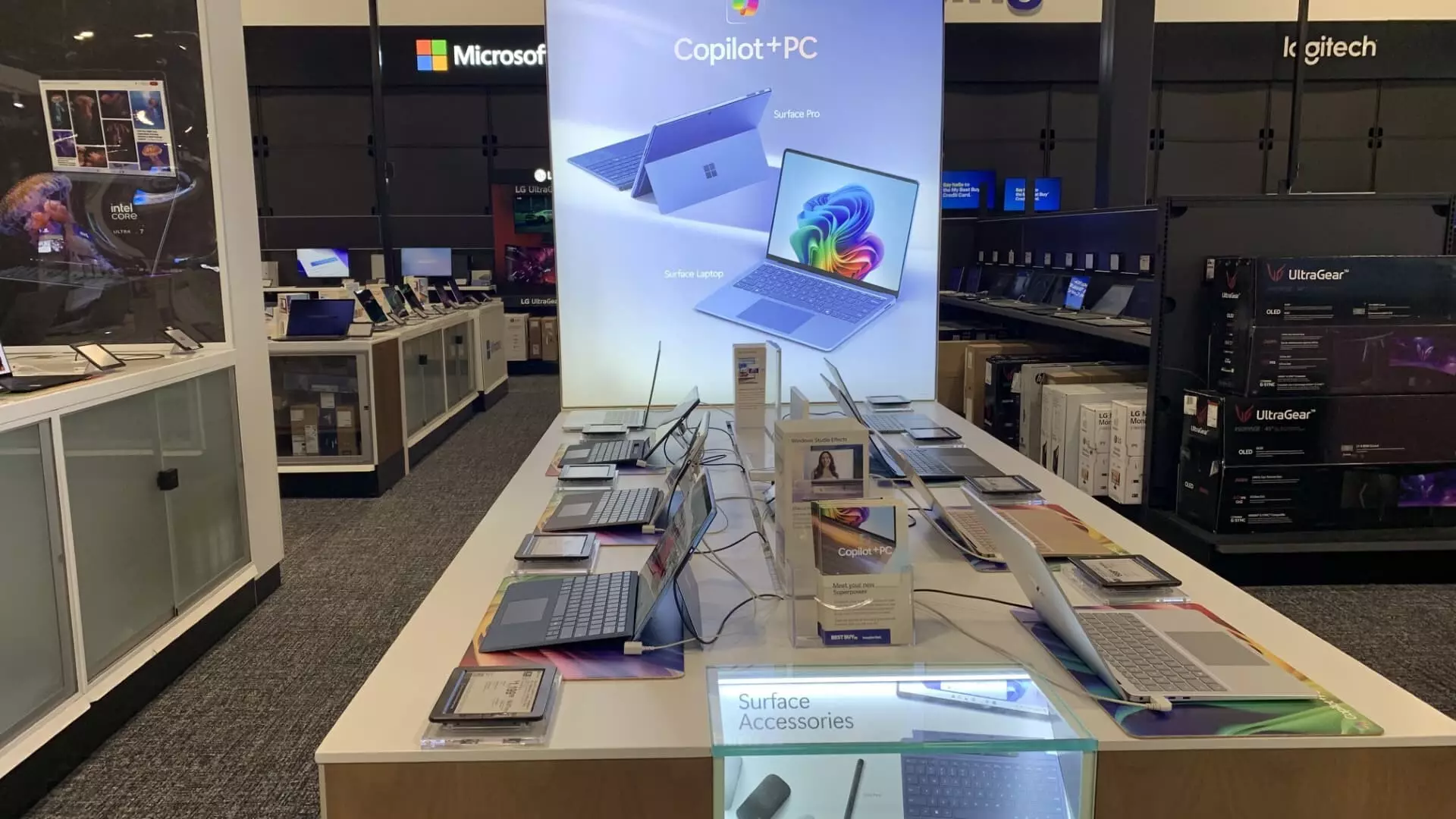In a landscape dominated by evolving consumer behavior and shifting economic indicators, the decision to offload 165 shares of Best Buy at an approximate price of $86 each marks a pivotal moment for investors. As Jim Cramer’s Charitable Trust now possesses 600 shares of BBY, the overall weighting in the portfolio has notably decreased from 1.9% to approximately 1.5%. This reduction stems from more than just price fluctuations; it is indicative of broader concerns within the retail sector, particularly in the electronic retail space where Best Buy operates.
Share prices have shown a consistent decline since October, attributed largely to apprehensions regarding retail sales in electronics. The potential imposition of higher tariffs on Chinese goods under the incoming Trump administration has exacerbated these fears. Furthermore, Best Buy’s fortunes are significantly tied to real estate market dynamics; the need for greater housing turnover is essential to boost sales of higher-end consumer goods, from appliances to home entertainment devices.
The economic backdrop cannot be overlooked. Rising mortgage rates have proven detrimental, with the Federal Reserve’s current rate cuts being insufficient to stimulate the necessary consumer environment for Best Buy’s products. The company’s strategy adjustments included reducing its stake when stock prices hovered around $90 per share in late October, recognizing the risk of an imminent downturn.
The lingering concerns over mortgage troubles and potential stagnation of artificial intelligence-equipped personal computers being less popular than anticipated create a complex picture for Best Buy. While some of these challenges might be fleeting, they necessitate prudent risk management—hence the decision to trim down the stock holdings further.
One of the cornerstones of successful investing is discipline. In the latest transaction, the motivation to sell Best Buy shares transcends mere market timing—it reflects a commitment to safeguarding hard-won gains. The honor of turning an 8% profit on investments made in early 2024 outweighs the potential gamble of holding onto stocks that might falter following the company’s upcoming earnings report. This highlights a crucial aspect of risk management: preventing a paper gain from transforming into an actual loss.
In an unpredictable landscape where same-store sales could encounter setbacks, this tactical prudence stands as a testament to Cramer’s philosophy and strategy. The upcoming earnings report is undoubtedly poised to be a critical event that could either solidify optimism or trigger further caution among investors.
Diving deeper into the competitive environment, Best Buy finds itself embroiled in a battle against retail giants such as Walmart, Amazon, and Costco, all of which are aggressively commandeering market share. The disheartening report from Target, which missed anticipated profit margins leading to the stock plummeting over 20%, serves as a potent reminder of how volatile and unforgiving the retail sector can be.
The survival of companies like TJX and Williams-Sonoma points to a trend where specialized retailers can still find traction despite broader disruptions. Yet, Best Buy’s primary competition in electronics remains fierce; it is crucial to acknowledge this reality while making investment decisions.
In sum, the decision to sell off segments of Best Buy’s shares encapsulates not just a response to immediate market pressures, but also represents a disciplined approach to navigating uncertainty. For investors, the challenge lies in discerning which trends will prove ephemeral and which will fundamentally reshape the retail space. As the earnings season unfolds, all eyes will be on how well Best Buy navigates its current challenges, and whether it can rebound from its current position or continue to wrestle with market share alongside its formidable competitors. Within this narrative, the breadth of strategic foresight and timely adjustments will dictate the future landscape of investments in electronic retail.


Leave a Reply